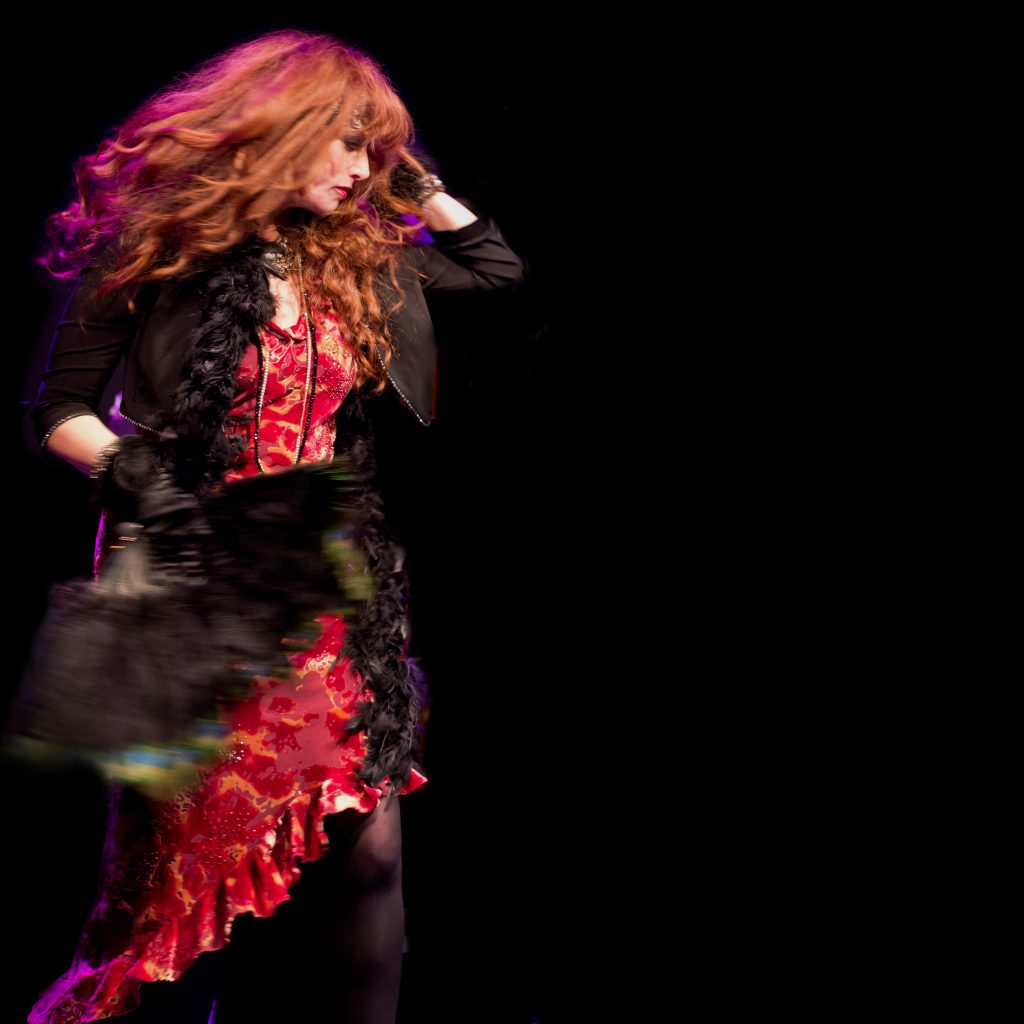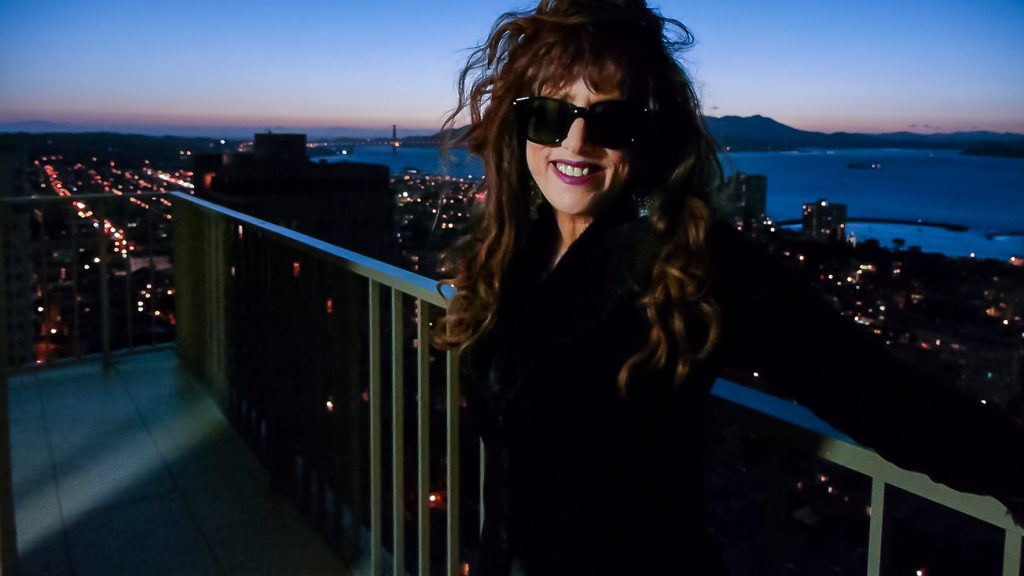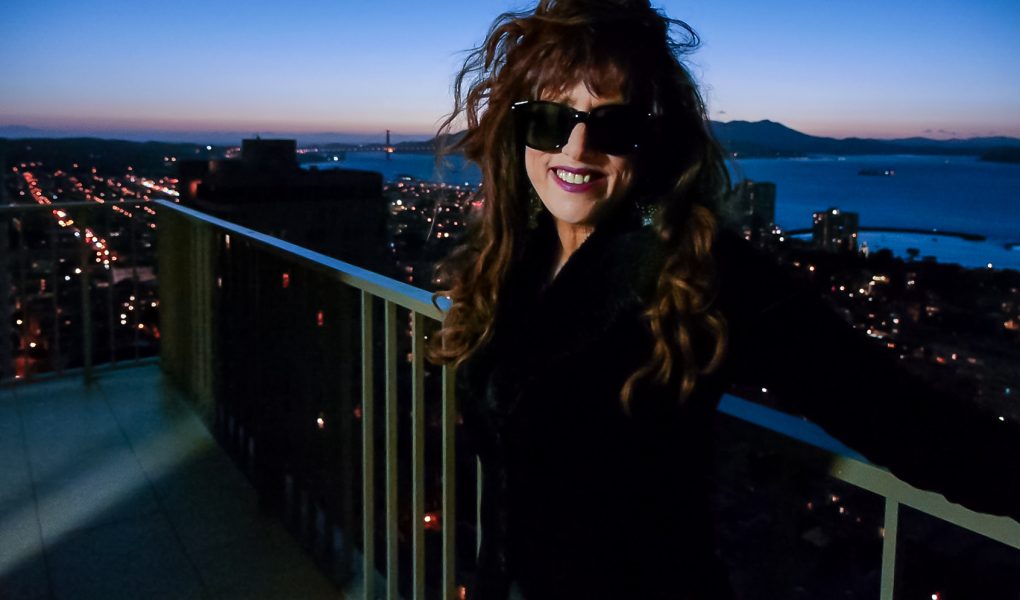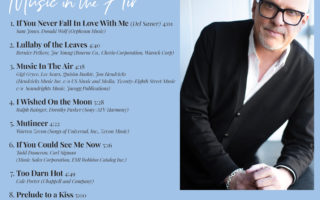

Roberta Donnay is a vocalist known for her renditions of vintage songs. Critical Jazz Blog has described her as ‘taking old school jazz and making it new cool,’ and Jazz Times as ‘having a singularly enticing sound.’ Donnay is the leader of The Prohibition Mob, with a mission to explore, celebrate, and promote America’s jazz roots by interpreting vintage material as well as contributing original works reminiscent of the Jazz Age. Roberta Donnay and the Prohibition Mob Band have been touring the U.S. since 2012 and released their third CD, ‘My Heart Belongs To Satchmo’ on Blujazz in March 2018.
Music and More, Arizona, called her ‘a talent that’s an undeniable force of nature.’
Donnay agreed to speak to Platinum Mind’s Sammy Stein about her journey so far.
Tell us briefly about your journey in music.
I’ve been performing and recording for more than two decades. I was drawn to jazz as a kid. I learned guitar as a teen and started performing in clubs with guitar duos.
My latest recording is “Blossom-ing!” celebrating the music of Blossom Dearie.
Before forming the Prohibition Mob, I recorded with legendary producer Orrin Keepnews and was a member of Dan Hicks & the Hot Licks. My music spans multiple genres, including writing for film and TV.
I composed the song ‘One World’ which became a world peace theme after it was introduced in San Francisco at UN50 events and performed by children. It was toured through Japan by the Min-On Orchestra and became a theme for World AIDS Day in South Africa, school graduations, and Earth Day celebrations.
You have released some great singles. Will you be following these up with an album?
We released “Blossom-ing!” in 2022 (16 tracks) and are currently looking at our next project. Meanwhile, I’m composing with my partner Nekujak, trailers, and film/TV, so we’re constantly composing and recording, although these pieces aren’t ones I release as an artist. I still love writing, producing, and collaborating with other artists as well.
How is it promoting your music? Do you find you have positives and negatives?
PR is expensive. Recording live jazz in big studios is also expensive. I’ve been fortunate to have signed with other jazz labels who handle the press and radio promotion. For ‘Blossom-ing!’ we hired our own PR and radio promoters. We need backing from angels to keep up the demands of promotion! My income as an artist doesn’t cover these expenses.
How is it, as a female artist? Do you feel there is any prejudice or expectations of women that male performers do not have, or do you feel the field is even now?
If a female artist was working as I was coming up, she needed to exceed in all areas including in business, then all male competitors. Because guys would help each other but would rarely help a female singer.
It’s very sexist. The entire music industry is sexist. It’s not like the corporate world where women are protected from discrimination and have equal rights. The music industry has no rules or protection for women. It takes a lot of strength to deal with this and not take it personally. That said, there are many great young female artists coming up today and I think
we have more support now than ever.
But if you look at statistics…
I remember a jazz guy calling me one day, and after our interview, he told me that the jazz festivals featured less than 3% female headliners. And they presented less than 10% of female musicians performing. This must change.
If you were to advise a young performer just starting. Are there any lessons you might pass on?
Learn to play an instrument and join a band. Practice daily. I used to practice guitar 8 hours a day and then go out and play a gig. Only those who master their instruments and performances can compete for the long haul. Also, seek out music business classes and learn from others, and ask for help. Don’t be afraid of asking others to mentor you.
Looking ahead – what would you like to have achieved in five or ten years’ time music-wise?
More jazz recordings and new projects coming in. Festivals and tours, or artist-in-residence, including Japan and Europe. More travel, please!
Is it difficult to fit music in with other aspects of your life?
Music is my life. I’ve always put music in the centre, along with friends and family. If we treat music as a hobby, it will treat us the same.
How have you found supportive critics, editors, and people who appreciate your music? Have you targeted audiences or put it out and hoped for the best?
I’ve had amazing support from the press and radio. I’ve never worried about targeting audiences. Instead, my attitude is whoever buys my recordings, or just listens, I made it for them. I record just what I love and so I’ve had no regrets.
How do you find people to work with – producing, playing alongside, etc?
Word of mouth is big in our world. I’ve had good fortune finding players on the road from other musician referrals.
And finally…..
I appreciate everyone behind the scenes in music. All the engineers, bookers, people who sell the tickets, the media and press, writers, servers in venues, venue owners, people who drive the buses, and airplanes, studio owners, arrangers, producers, managers, and agents. All the ones who are not on stage deserve the same amount of credit as those who are. It’s all a labour of love for many. Many of us don’t get paid for the number of hours worked but we wouldn’t trade this for any other job with security and benefits. Music has its healing powers and brings folks together. And spreading the love. Without this, I wouldn’t be here still singing and loving it. One of our aims is to have pieces where knowledge is passed on by experience.




